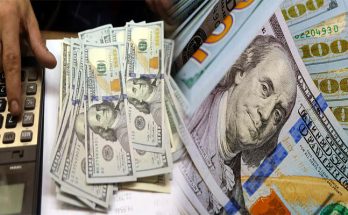In any economic system, money plays a crucial role as a medium of exchange, unit of account, and store of value. While people often associate money with its role in facilitating transactions, its function as a store of value is equally significant. In this article, we will explore how money serves as a store of value in economic systems and its importance in maintaining economic stability.
1. Preserving Wealth
One of the primary functions of money as a store of value is its ability to preserve wealth over time. Money allows individuals and businesses to accumulate and save their earnings in a stable and secure form. This is especially important in uncertain economic times when other assets may be subject to volatility or depreciation.
By holding money, individuals can retain the purchasing power of their wealth until they decide to spend or invest it. This allows for financial stability and provides a cushion against unforeseen expenses or emergencies.
2. Liquidity
Money’s function as a store of value also provides a high degree of liquidity. Liquidity refers to the ease with which an asset can be converted into cash without significant loss in value. Unlike other assets such as real estate or stocks, money can be readily converted into other goods and services.
In times of financial need, having money as a store of value allows individuals to quickly access funds for immediate expenses or investment opportunities. This liquidity ensures that money retains its value and utility even in times of economic uncertainty.
3. Confidence and Stability
The function of money as a store of value is closely tied to confidence and stability in an economic system. When individuals trust that holding money will preserve their wealth, they have greater confidence in the overall economic stability. This confidence leads to increased investment, spending, and economic growth.
The stability of money as a store of value is influenced by various factors, including inflation rates, interest rates, and government policies. Governments and central banks play a crucial role in maintaining the stability of money by implementing monetary policies that control inflation and promote economic stability.
4. Comparing Value Over Time
Money’s function as a store of value also allows individuals to compare the value of goods and services over time. By using a common currency as a unit of account, individuals can assess the relative worth of different goods or assets.
For example, if the price of a specific good increases significantly over time, it indicates that the value of money has decreased in relation to that particular good. This ability to compare values helps individuals make informed decisions about spending, investing, and saving.
5. Diversification
Lastly, money as a store of value provides individuals with the flexibility to diversify their holdings. While it is important to have money on hand for immediate needs, individuals can also allocate their wealth to other assets such as stocks, bonds, or real estate to further diversify their portfolio and potentially increase their wealth over time.
Diversification helps reduce risk by spreading investments across different asset classes. Money serves as the foundation for this diversification strategy, allowing individuals to maneuver their resources based on their risk appetite and investment goals.
Money’s function as a store of value is a crucial aspect of any economic system. By preserving wealth, providing liquidity, maintaining confidence and stability, facilitating value comparisons, and enabling diversification, money ensures the stability and growth of economic systems. Understanding the importance of money as a store of value helps individuals and policymakers make informed financial decisions to maintain economic stability and security.





